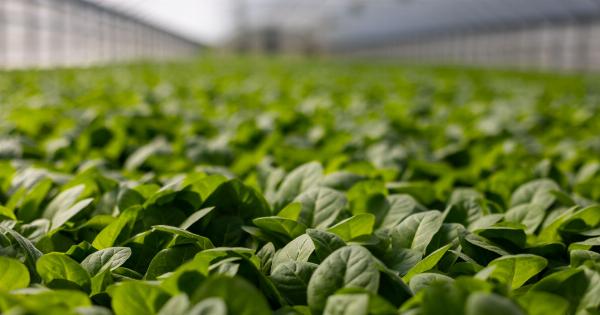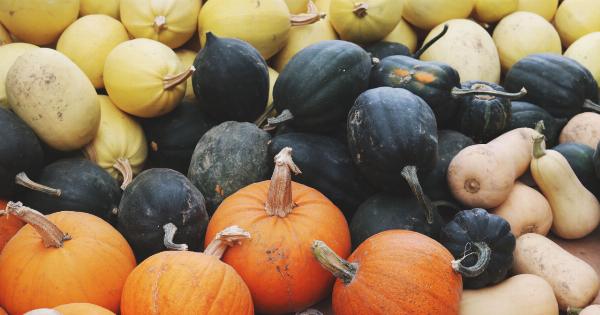When it comes to choosing between frozen and fresh vegetables, there are several factors to consider.
Both options offer their own benefits and drawbacks, and the choice ultimately comes down to personal preference and what works best for your lifestyle and budget. In this article, we’ll explore the pros and cons of frozen and fresh vegetables to help you make an informed decision.
Pros of Frozen Vegetables
Frozen vegetables have several advantages over fresh vegetables, including:.
1. Convenience
Frozen vegetables are incredibly convenient for those who don’t have the time or energy to prepare fresh vegetables. They are pre-washed, pre-cut, and ready to go, making them a great option for busy weeknights or for those who are short on time.
2. Longevity
Frozen vegetables have a longer shelf life than fresh vegetables, which means you can stock up on them and have them on hand in your freezer for weeks or even months.
This makes it easier to incorporate vegetables into your meals regularly without worrying about them spoiling.
3. Retain Nutrients
Frozen vegetables are picked at the peak of their ripeness and frozen quickly, which helps to preserve their nutrients. In fact, research suggests that frozen vegetables can be just as, if not more, nutritious than fresh vegetables.
4. Cost Effective
Frozen vegetables are often more cost-effective than fresh vegetables, especially when they are out of season. This means you can still enjoy a variety of vegetables without breaking the bank.
Cons of Frozen Vegetables
While frozen vegetables offer many benefits, there are also some downsides to consider, including:.
1. Texture
Frozen vegetables can sometimes have a mushy texture when thawed and cooked. This can be a turn-off for those who prefer their vegetables to have a crisp texture.
2. Taste
Frozen vegetables can sometimes have a slightly different taste than fresh vegetables, particularly when it comes to the more delicate varieties like leafy greens.
3. Added Ingredients
Sometimes frozen vegetables are packaged with added ingredients, such as salt or sauces. This means you may not have control over the seasoning or sodium content of your vegetables.
4. Limited Variety
While there are many options for frozen vegetables, there can be limitations when it comes to variety and availability. You may not be able to find certain vegetables that are available fresh in your area.
Pros of Fresh Vegetables
Fresh vegetables also have several advantages, including:.
1. Texture and Taste
Fresh vegetables typically have a crisp texture and vibrant taste that can’t be replicated by frozen vegetables. This can be preferable for those who value the flavor and texture of their vegetables.
2. Versatility
When it comes to cooking, fresh vegetables offer more versatility than frozen vegetables. You can roast, sauté, grill, or eat them raw, which means you can get creative with how you prepare them.
3. No Additives
With fresh vegetables, you have complete control over what you season them with, meaning you can avoid added salt and sauces.
This is beneficial for those who are watching their sodium intake and are conscious of what they are putting into their bodies.
4. Supports Local Economy
Buying fresh vegetables from local farmers’ markets or grocery stores supports the local economy and promotes sustainability.
Cons of Fresh Vegetables
Despite the benefits, there are also some drawbacks to fresh vegetables, including:.
1. More Expensive
Fresh vegetables can be more expensive than frozen vegetables, especially when they are out of season or not grown locally. This can make it harder to incorporate a variety of fresh vegetables into your diet.
2. Spoilage
Fresh vegetables have a shorter shelf life than frozen vegetables, which means they can spoil if not consumed or stored correctly. This can be frustrating for those who want to meal prep or stock up on vegetables for the week.
3. Prep Time
Fresh vegetables require more prep time than frozen vegetables, as they need to be washed, cut, and cooked. This can be a barrier for those who are short on time or lack the necessary kitchen skills.
4. Seasonal Availability
Some fresh vegetables are only available seasonally, which means you may not have access to certain varieties year-round.
Conclusion
When it comes to eating vegetables, there is no right or wrong choice between frozen and fresh. Both options have their pros and cons, and the choice ultimately comes down to personal preference, budget, and convenience.
Whether you choose frozen or fresh vegetables, the most important thing is to incorporate a variety of vegetables into your diet for optimal health benefits.




























